#torino 2018
Explore tagged Tumblr posts
Text


Their all mascots here
from lift to right
Neve (Torino 2006)
Gliz (Torino 2006)
Silviya Petrova (Hare)(Sochi 2014)
Vadim Pak (Leopard)(Sochi 2014)
Oleg Seredechniy (Polar Bear)(Sochi 2014)
Miga (Vancouver 2010)
Hidy (Calgary 1988)
Howdy (Calgary 1988)
Soohorang (PyeongChang 2018)
Quatchi (Vancouver 2010)
Powder (Salt Lake City 2002)
Copper (Salt Lake City 2002)
Coal (Salt Lake City 2002)
#olympics#olympic mascots#calgary 1988#salt lake city 2002#torino 2006#vancouver 2010#sochi 2014#pyeongchang 2018#neve#gliz#silviya petrova#vadim pak#oleg seredechniy#miga#hidy#howdy#soohorang#quatchi#powder#copper#coal
7 notes
·
View notes
Text
Cynical and bitter but I've been wondering if the League getting such a downer ending was indeed the plan all along.
Originally, Horikoshi never wanted to do Villain profiles. He wanted the Villains to be scary. Maybe he always intended death to be the answer to them, even as he expanded on their backstories.
In an old interview from 2018, when asked if Shigaraki is a villain who should be saved, Horikoshi does answer 'yes', but then follow it up with: "I think that we have gotten to the point where Shigaraki can no longer turn back though."
Movie 2 ending - which Horikoshi said was the ending he originally planned - has Deku and Bakugou punching Nine (pseudo-Shigaraki) to death-as-they-know-it.
Once again, technically, Shigaraki's heart was saved. Deku smashed his hatred. Deku took Tenko's hands. Unfortunately Shigaraki didn't immediately convert to Heroism and still wanted to fight for the League - point where he didn't turn back - so Deku gave up trying to save him physically.
A few weeks before, I thought that Horikoshi just got tied and wrapped things up in the quickest and sadly weirdest way possible. I still am willing to allow that, but ever since Horikoshi started Act 3 three years ago, he never actually wrote Heroes giving the Villains' grievances any serious consideration until it comes out during the confrontation and the Heroes giving a few words towards it at best, and at worse, not even knowing the problem (quirk counseling, Tenko's Walk). He let Uraraka and Deku still adhere to insisting on practically dehumanizing their opponents/Villains the day before the final battle (probably so that when Uraraka and Deku realize they still can't ignore the pain they see in their Villains and finally reach out a bit, that's the height of compassion and heroism.)

But really, sorry not sorry to sound like a broken record, Act 3 had Deku acting like a dipshit the entire time. He says he wants to save The Crying Child he saw inside Shigaraki's heart, and not necessarily Shigaraki the person, and never actually takes killing off the table. He only vaguely keeps up this idea. He never reveals this desire to anyone, never involves his friends or adults in this plan. He doesn't even have a concrete plan, and all he never did was just to keep punching Shigaraki to kingdom come. He never actually protested when Gran Torino told him he should kill Shigaraki, he never opposes the creation of a battlefield called "Sky Coffin", he does not speak up when the Heroes says they prefer the AFO persona to be in possession of Shigaraki. During their whole fight, Deku barely talks to the guy.
The best Deku ever does is to hold back on giving Shigaraki an annihilation blow until he could find out why The Crying Child was crying, which he does by literally smashing into Shigaraki's core to pry his trauma open. And even then, when Tenko is spilling out his guilt and grief that he killed his family, as well as his fears that his existence is cursed, all Deku has to say is "Well, holding hands feels nice, so I'm here." I get that's supposed to be like, Deku accepting Tenko despite Tenko having a deadly quirk and blood on his hands, but come on. As an act of Greatest Heroism that it's supposed to be, that's so... low bar, to put it mildly.
(Then when Shigaraki gets repossessed, Deku gives up any thinking on saving Shigaraki, and then readies up the annihilation punch. Volume release even expands on just how much power and preparation Deku is using to smash Shigaraki's body to pieces. There's no intent to figure out if Shigaraki is still there to bring back or minimize harm to Shigaraki's body so there's something left after AFO is gone. It's not an accident. Deku fully goes in for the kill.)
It all feels like truly saving Shigaraki - from possession, from AFO, from his distorted worldview, from a Hero System that hurt his friends, from his belief that the world isn't worth preserving - just wasn't a real goal for Deku. Never was, in Act 3. He wanted to understand The Crying Child and give some relief there, but that's it. Like exorcising an evil spirit and then forcing them to move on, never actually wanting the spirit to remain and continue existing - because there's no place for them in this world. (Which is why Deku also never has a vision for what comes after, for Shigaraki. Shouto wanted a meal with Dabi, Uraraka promised her blood to Toga, but Deku? Nothing.)
Overall, the ending actually does fit Deku's writing in the last act. He wants to save the ghost of The Crying Child but nothing else. He expands minimal effort in actually connecting with Shigaraki the adult man. He has no interest in addressing Shigaraki's grievances (nor in also saving the rest of League that Shigaraki is doing all this for) (and also it turns out Shigaraki's grievances aren't real because AFO made most of them up). His strategy is just to beat up Shigaraki until Shigaraki throws up his trauma.
Adding to that, Deku's last words to a dying Shigaraki is that he can't forgive him, so basically he's considering Shigaraki as having past the point of return - exactly as Horikoshi stated in his interview. There might be something to Deku regretfully telling All Might that he couldn't save Tenko's life, but when he follows it up with "Even after I smashed his hatred, he still wanted to stay the League's leader," that really can't be anything but Deku basically putting some of the blame on Shigaraki, for not ditching his friends (who, to Deku, apparently don't deserve to be saved alongside Shigaraki). Sticking with the League is being past the point of turning back... which is the same conclusion Hawks comes to with Twice, in Act 2 (...so it seems that's been there all along.)
The ending fits Deku's writing - and overall - in the last act (and even before that.) Deku's utter non-progress fits Shigaraki's conclusion. His half-hearted actions made sense and so of course led to his final battle of just giving Shigaraki a giant Smash (but with pity and some sympathy, because he's not an cold killer but a Hero who can even spare emotions towards a monster).
I really had toyed with the idea that maybe Horikoshi got tired and just ended it this sad way. Now I'm no longer so generous.
88 notes
·
View notes
Text
Precaratize bosses
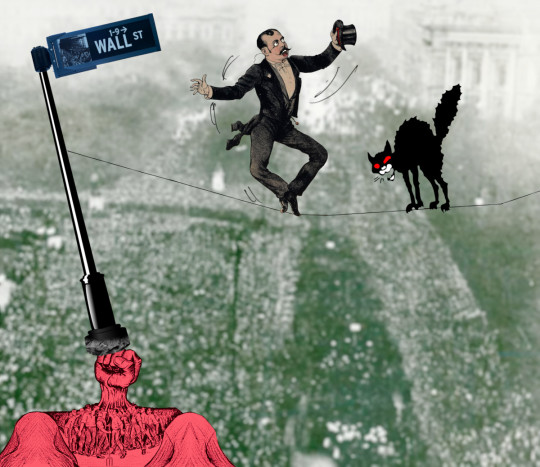
I'm touring my new, nationally bestselling novel The Bezzle! Catch me SUNDAY (Apr 21) in TORINO, then Marin County (Apr 27), Winnipeg (May 2), Calgary (May 3), Vancouver (May 4), and beyond!

Combine Angelou's "When someone shows you who they are, believe them" with the truism that in politics, "every accusation is a confession" and you get: "Every time someone accuses you of a vice, they're showing you who they are and you should believe them."
Let's talk about some of those accusations. Remember the moral panic over the CARES Act covid stimulus checks? Hyperventilating mouthpieces for the ruling class were on every cable network, complaining that "no one wants to work anymore." The barely-submerged subtext was their belief that the only reason people show up for work is that they're afraid of losing everything – their homes, their kids, the groceries in their fridge.
This isn't a new development. Back when Clinton destroyed welfare, his justification was that "handouts" make workers lazy. The way to goad workers off their sofas (and the welfare rolls) and into jobs was to instill fear in them:
https://www.theatlantic.com/business/archive/2018/03/welfare-childhood/555119/
This is also the firm belief of tech bosses: for them, mass tech layoffs are great news, because they terrorize the workers you don't fire, so that they'll be "extremely hardcore" and put in as many extra hours as the company demands, without even requiring any extra pay in return:
https://fortune.com/2022/10/06/elon-musk-jason-calacanis-return-to-office-gentlemens-layoffs-twitter/
Now, there's an obvious answer to the problem of no one taking a job at the wage being offered: just increase the offer. Capitalists claim to understand this. Uber will tell you that surge pricing "incentivizes drivers" to take to the streets by offering them more money to drive during busy times:
https://www.uber.com/blog/austin/providing-rides-when-they-are-most-needed/
(Note that while Uber once handed the lion's share of surge price premiums to drivers, these days, Uber just keeps the money, because they've entered the enshittification stage where drivers are so scared of being blacklisted that Uber can push them around instead of dangling carrots.)
(Also note that this logic completely fails when it comes to other businesses, like Wendy's, who briefly promised surge-priced hamburgers during busy times, but without even the pretense that the surge premium would be used to pay additional workers to rush to the restaurant and increase the capacity:)
https://www.theguardian.com/food/2024/feb/27/wendys-dynamic-surge-pricing
So bosses knew how to address their worker shortage: higher wages. You know: supply and demand. For bosses, the issue wasn't supply, it was price. A worker who earns $10/hour but makes the company $20 profit every hour is splitting the surplus 50:50 with their employer. The employer has overheads (rent on the shop, inventory, advertising and administration) that they have to pay out of their end of that surplus. But workers also have overheads: commuting costs, child-care, a professional wardrobe, and other expenses the worker incurs just so they can make money for their boss.
There's no iron law of economics that says the worker/boss split should be 50/50. Depending on the bargaining power of workers and their bosses, that split can move around a lot. Think of McDonald's and Walmart workers who work for wildly profitable corporate empires, but are so badly paid that they have to rely on food stamps. The split there is more like 10/90, in the boss's favor.
The pandemic changed the bargaining power. Sure, workers got a small cushion from stimulus checks, but they also benefited from changes in the fundamentals of the labor market. For example, millions of boomers just noped out of their jobs, forever, unwilling to risk catching a fatal illness and furious to realize that their bosses viewed that as an acceptable risk.
Bosses' willingness to risk their workers' lives backfired in another way: killing hundreds of thousands of workers and permanently disabling millions more. Combine the boomer exodus with the workers who sickened or died, and there's just fewer workers to go around, and so now those workers enjoy more bargaining power. They can demand a better split: say, 75/25, in their favor.
Remember the 2015 American Airlines strike, where pilots and flight attendants got a raise? The eminently guillotineable Citibank analyst Kevin Crissey declared: "This is frustrating. Labor is being paid first again. Shareholders get leftovers":
https://www.thestreet.com/investing/american-airlines-flight-attendants-bash-citi-analyst-who-put-shareholders-before-workers-14134309
Now, obviously, the corporation doesn't want to offer a greater share of its surplus to its workforce, but it certainly can do so. The more it pays its workers, the less profitable it will be, but that's capitalism, right? Corporations try to become as profitable as they can be, but they can't just decree that their workers must work for whatever pay they want to offer (that's serfdom).
Companies also don't get to dictate that we must buy their goods at whatever price they set (the would be a planned economy, not a market economy). There's no law that says that when the cost of making something goes up, its price should go up, too. A business that spends $10 to make a widget you pay $15 for has a $5 margin to play with. If the business's costs go up to $11, they can still charge $15 and take $1 less in profits. Or they can raise the price to $15.50 and split the difference.
But when businesses don't face competition, they can make you eat their increased costs. Take Verizon. They made $79b in profit last year, and also just imposed a $4/month service charge on their mobile customers due to "rising operational costs":
https://www.reddit.com/r/LateStageCapitalism/comments/1c53c4p/79bn_in_profits_last_year_but_you_need_an_extra/
Now, Verizon is very possibly lying about these rising costs. Excuseflation is rampant and rising, as one CEO told his investors, when the news is full of inflation-talk, "it’s an opportunity to increase the prices without getting a whole bunch of complaining from the customers":
https://pluralistic.net/2023/03/11/price-over-volume/#pepsi-pricing-power
But even stipulating that Verizon is telling the truth about these "rising costs," why should we eat those costs? There's $79b worth of surplus between Verizon's operating costs and its gross revenue. Why not take it out of Verizon's bottom line?
For 40 years, neoliberal economists have emphasized our role as "consumers" (as though consumers weren't also workers!). This let them play us off against one-another: "Sure, you don't want the person who rings up your groceries to get evicted because they can't pay their rent, but do you care about it enough to pay an extra nickel for these eggs?"
But again, there's no obvious reason why you should pay that extra nickel. If you have the buying power to hold prices down, and workers have the labor power to keep wages up, then the business has to absorb that nickel. We can have a world where workers can pay their rent and you can afford your groceries.
So how do we get bosses to agree to take less so we can have more? They've told us how: for bosses, the thing that motivates workers to show up for shitty jobs is fear – fear of losing their homes, fear of going hungry.
When your boss says, "If you don't want to do this job for minimum wage, there's someone else who will," they're telling you that the way to get a raise out of them is to engineer things so that you can say, "If you don't want to pay me a living wage for this job, there's someone else who will."
Their accusation – that you only give someone else a fair shake when you're afraid of losing out – is a confession: to get them to give you a fair shake, we have to make them afraid. They're showing us who they are, and we should believe them.
In her Daily Show appearance, FTC chair Lina Khan quipped that monopolies are too big to care:
https://www.youtube.com/watch?v=oaDTiWaYfcM
Philosophers of capitalism are forever praising its ability to transform greed into public benefit. As Adam Smith put it, "It is not from the benevolence of the butcher, the brewer, or the baker, that we expect our dinner, but from their regard to their own interest." The desire to make as much money as possible, on its own, doesn't produce our dinner, but when the butcher, the brewer and the baker are afraid that you will take your labor or your wallet elsewhere, they pay more and charge less.
Capitalists don't want market economies, where they have to compete with one another, eroding their margins and profits – they want a planned economy, like Amazon, where Party Secretary Bezos and his commissars tell merchants what they can sell and tell us what we must pay:
https://pluralistic.net/2024/03/01/managerial-discretion/#junk-fees
Capitalists don't want free labor, where they have to compete with rival capitalists to bid on their workers' labor – they want noncompetes, bondage fees, and "training repayment agreement provisions" (TRAPs) that force their workers to stay in dead-end jobs rather than shopping for a better wage:
\https://pluralistic.net/2022/08/04/its-a-trap/#a-little-on-the-nose
Capitalists hate capitalism, because capitalism only works if the capitalists are in a constant state of terror inspired by the knowledge that tomorrow, someone smarter could come along and open a better business, poaching their customers and workers, and putting the capitalist on the breadline.
https://pluralistic.net/2024/04/18/in-extremis-veritas/#the-winnah
Being in a constant precarious state makes people lose their minds, and capitalists know it. That's why they work so hard to precaratize the rest of us, saddling us with health debt, education debt, housing debt, stagnating wages and rising prices. It's not just because that makes them more money in the short term from our interest payments and penalties. It's because it de-risks their lives: monopolies and cartels can pass on any extra costs to consumers, who'll eat shit and take it:
https://pluralistic.net/2022/02/02/its-the-economy-stupid/#overinflated
A workforce that goes to bed every night worrying about making the rent is a workforce that put in unpaid overtime and thank you for it.
Capitalists hate capitalism. You know who didn't hate capitalism? Karl Marx and Freidrich Engels. The first chapter of The Communist Manifesto is just these two guys totally geeking out about how much cool stuff we get when capitalists are afraid and therefore productive:
https://pluralistic.net/SpectreHaunting
But when capitalists escape their fears, the alchemical reaction that converts greed to prosperity fizzles, leaving nothing behind but greed and its handmaiden, enshittification. Google search is in the toilet, getting worse every year, but rather than taking reduced margins and spending more fighting spam, the company did a $80b stock-buyback and fired 12,000 skilled technologists, rather than using that 80 bil to pay their wages for the next twenty-seven years:
https://pluralistic.net/2024/02/21/im-feeling-unlucky/#not-up-to-the-task
Monopoly apologists like to argue that monopolists can rake in the giant profits necessary to fund big, ambitious projects the produce better products at lower prices and make us all better off. But even if monopolists can spend their monopoly windfalls on big, ambitious projects, they don't. Why would they?
If you're Google, you can either spend tens of billions on R&D to keep up with spam and SEO scumbags, or you can spend less money buying the default search spot on every platform, so no one ever tries another search engine and switches:
https://pluralistic.net/2024/04/04/teach-me-how-to-shruggie/#kagi
Compared to its monopoly earnings, the tech sector's R&D spending is infinitesimal:
https://pluralistic.net/2020/08/11/nor-glom-of-nit/#capitalists-hate-competition
How do we get capitalists to work harder to make their workers and customers better off? Capitalists tell us how, every day. We need to make them afraid.

If you'd like an essay-formatted version of this post to read or share, here's a link to it on pluralistic.net, my surveillance-free, ad-free, tracker-free blog:
https://pluralistic.net/2024/04/19/make-them-afraid/#fear-is-their-mind-killer

Image: Vlad Lazarenko (modified) https://en.m.wikipedia.org/wiki/File:Wall_Street_Sign_%281-9%29.jpg CC BY-SA 3.0 https://creativecommons.org/licenses/by-sa/3.0/deed.en
#pluralistic#petard#precarity#cares act#stimulus#market discipline#competition#too big to care#antitrust#labor#trustbusting#consumer welfare#every accusation is a confession
157 notes
·
View notes
Text

Fata headquarters, by Oscar Niemeyer and Riccardo Morandi (1976-1979).
Pianezza (Torino), Italy.
© Roberto Conte (2018)
#architecture#architecturephotography#architettura#architektur#brutalism#brutalist#brutalismo#niemeyer#oscarniemeyer
57 notes
·
View notes
Text

Guillermo Muñoz Vera - Reentrada En Torino, 2018
241 notes
·
View notes
Text
#for me its vancouver for sure#cause up to sochi there's like one person in there that ur maybe like uhmmmm about#like lipinski? no. hughes? whatever. slutskaya? good skater but annoying as hell x2. rochette? whatever.#s*tnikova? lets not even start that conversation#but for pc and beijing ur like... zagi zhenya anna and sasha didnnot deserve. DISRESPECTFULLY#i think pc will sweep anyway cause its recent enought foreveryone to know it but also long enough back that there's nostalgia attached#i think some of the older ones are even more interesting like lillehammer ive just never been into oksana baiul or nancy kerrigan#i like kristi but i feel like sjating was way diff back theb#we needed michelle kwan....#x
16 notes
·
View notes
Text
William Hill
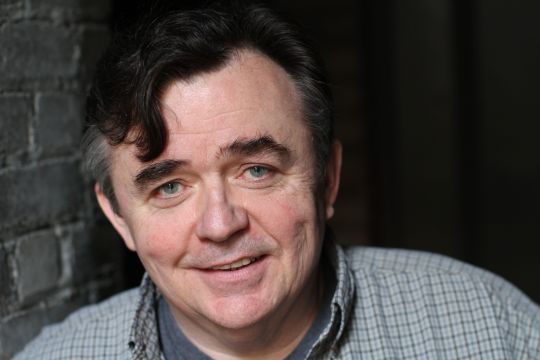
Physique: Average/Chubby Build Height: 5'8" (1.73 m)
William Hill (born March 30, 1961) is an American actor best known for Gran Torino, Boardwalk Empire, and House of Cards (US). He has been a stalwart of various Law & Order series playing twelve different characters in Law & Order, Law & Order: Special Victims Unit, Law & Order: Criminal Intent and Law & Order: Trial by Jury. Hill also does a lot of theatre work.



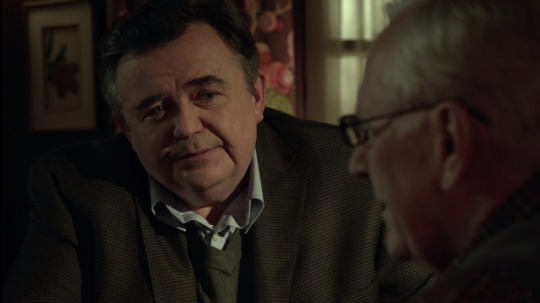
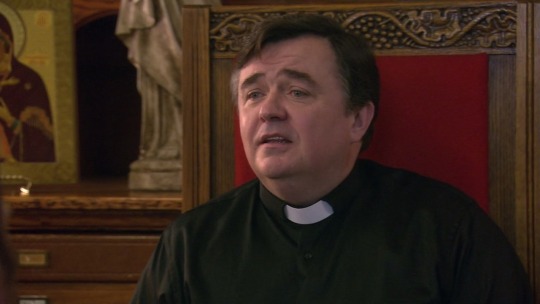
The slightly stocky character actor has managed to become more and more gorgeous with each passing year. Not only is he a lovely shape, Hill has the sweetest face I have ever seen. A sort of a hot Jerry Mathers (The Beaver) look. He does his finest work in Odd Mom Out (2016) when he is in the buff to show off his jolly belly and creamy buns. He poses for a sexy photo, putting a hat in front of his junk. He gives the camera coy, flirty eyes and it makes us absolutely melt.
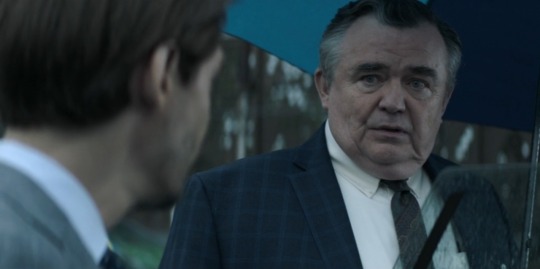

Lets see, he was born and raised in the North Ward of Newark, NJ and other than that, there is not much to say as I can't find a lot of information on him. So there is no need to disown my delusion being gay and waiting for me to sweep him off his feet. And he's fairly young so someone might give him another nude role down the road. Come on William, get your cock out next time!
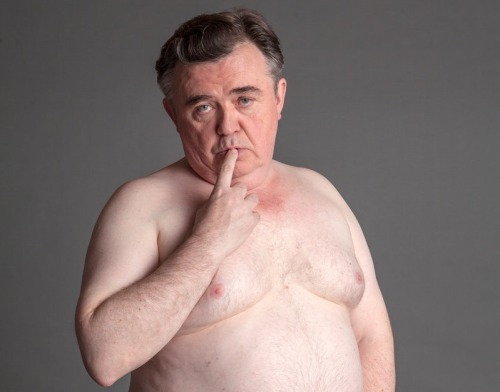
RECOMMENDATIONS: (1996) Striptease (2008) Gran Torino (2010) Boardwalk Empire (2015–2017) Odd Mom Out - Shirtless, rear nudity (2013–2018) House of Cards
67 notes
·
View notes
Text
(MHA) GRAN TORINO SIMS 4 CC
Hey folks! It took me a bit, but I finally got everything done for the CC I've been working on! It's Gran Torino from My Hero Academia! I'm honestly surprised I couldn't find CC for him already, seeing as we've had models to base it off of since One's Justice in 2018. The wait is over, I guess!

CC GUIDE:
Costume (10 swatches) in Full Body
Cape (10 swatches) in Necklaces
Mask (10 swatches) in Glasses
Beard in Facial Hair
Hair (including hat cuts) in Hair
DOWNLOAD:
31 notes
·
View notes
Text
Il cane ansima
L’importante non è la singola parola, ma il gruppo di parole retto da relazioni interne.
A. Allora, Prontuario pornogrammaticale. La punteggiatura, Torino, Lindau, 2018
9 notes
·
View notes
Text
Opera on YouTube 6
Pagliacci
Franco Enriques studio film, 1954 (Franco Corelli, Mafalda Micheluzzi, Tito Gobbi; conducted by Alfredo Simonetto; no subtitles)
Tokyo Bunka Kaikan, 1961 (Mario del Monaco, Gabriella Tucci, Aldo Protti; conducted by Giuseppe Morelli; Japanese subtitles)
Herbert von Karajan studio film, 1968 (Jon Vickers, Raina Kabaivanska, Peter Glossop; conducted by Herbert von Karajan; no subtitles)
Franco Zeffirelli film, 1983 (Plácido Domingo, Teresa Stratas, Juan Pons; conducted by Georges Prêtre; English subtitles) – Part I, Part II, Part III, Part IV, Part V, Part VI
Metropolitan Opera, 1994 (Luciano Pavarotti, Teresa Stratas, Juan Pons; conducted by James Levine; Spanish subtitles)
Ravena Festival, 1998 (Plácido Domingo, Svetla Vassileva, Juan Pons; conducted by Riccardo Muti; Italian subtitles)
Zürich Opera House, 2009 (José Cura, Fiorenza Cedolins, Carlo Guelfi; conducted by Stefano Ranzani; no subtitles)
Chorégies d'Orange, 2009 (Roberto Alagna, Inva Mula, Seng-Hyoun Ko; conducted by Georges Prêtre; French subtitles)
Gran Teatre del Liceu, 2011 (Marcello Giordani, Angeles Blancas, Vittorio Vitelli; conducted by Daniele Callegari; English subtitles – ignore the silly references to Norse mythology and aliens that the translator threw in, they're not in the actual libretto)
Latvian National Opera, 2019 (Sergei Polyakov, Tatiana Trenogina, Vladislav Sulimsky; conducted by Jānis Liepiņš; no subtitles)
Die Entführung aus dem Serail
Dresden State Opera, 1977 (Armin Ude, Carolyn Smith-Meyer, Barbara Sternberer, Rolf Tomaszewski; conducted by Peter Gülke; no subtitles)
Bavarian State Opera, 1980 (Francisco Araiza, Edita Gruberova, Reri Grist, Martti Talvela; conducted by Karl Böhm; English subtitles)
Royal Opera House, Covent Garden, 1988 (Deon van der Walt, Inga Nielson, Lillian Watson, Kurt Moll; conducted by Georg Solti; English subtitles)
Salzburg Festival, 1989 (Deon van der Walt, Inga Nielson, Lillian Watson, Kurt Rydl; conducted by Horst Stein; no subtitles)
Théâtre du Châtelet, 1991 (Stanford Olsen, Luba Orgonasova, Cyndia Sieden, Cornelius Hauptmann; conducted by John Eliot Gardiner; French subtitles)
Vienna State Opera, 1989 (Kurt Streit, Aga Winska, Elzbieta Szmytka, Artur Korn; conducted by Nicolaus Harnoncourt; Hungarian subtitles) – Act I, Act II
Teatro della Pergola, 2002 (Rainer Trost, Eva Mei, Patrizia Ciofi, Kurt Rydl; conducted by Zubin Mehta; Spanish subtitles)
Gran Teatre del Liceu, 2012 (Christoph Strehl, Diana Damrau, Olga Peretyatko, Franz-Josef Selig; conducted by Ivor Bolton; Catalan subtitles)
Bankhead Theatre, 2018 (David Walton, Alexandra Batsios, Elena Galvan, Kevin Langan; conducted by Alex Katsman; English subtitles)
Theatro São Pedro, 2023 (Daniel Umbelino, Ludmilla Bauerfeldt, Ana Carolina Coutinho, Luiz-Ottavio Faria; conducted by Cláudio Cruz; Brazilian Portuguese subtitles)
Un Ballo in Maschera
Tokyo Bunka Kaikan, 1967 (Carlo Bergonzi, Antonietta Stella, Mario Zanassi; conducted by Oliviero di Fabritiis; Spanish subtitles)
Royal Opera House, Covent Garden, 1975 (Plácido Domingo, Katia Ricciarelli, Piero Cappuccilli; conducted by Claudio Abbado, English subtitles)
Teatro alla Scala, 1978 (Luciano Pavarotti, Mara Zampieri, Piero Cappuccilli; conducted by Claudio Abbado; Italian subtitles)
Metropolitan Opera, 1980 (Luciano Pavarotti, Katia Ricciarelli, Louis Quilico; conducted by Giuseppe Patané; no subtitles)
Royal Swedish Opera, 1986 (Nicolai Gedda, Siv Wennberg, Carl Johan Falkman; conducted by Eri Klas; sung in Swedish; Swedish subtitles)
Salzburg Festival, 1990 (Plácido Domingo, Josephine Barstow, Leo Nucci; conducted by Georg Solti; Spanish subtitles)
Leipzig Opera House, 2006 (Massimiliano Pisapia, Chiara Taigi, Franco Vassallo; conducted by Riccardo Chailly; English subtitles) – Part I, Part II
Teatro Regio di Torino, 2012 (Gregory Kunde, Oksana Dyka, Gabriele Viviani; conducted by Renato Palumbo; no subtitles) – Part I, Part II
Chorégies d'Orange, 2013 (Ramón Vargas, Kristin Lewis, Lucio Gallo; conducted by Alain Altinoglu; French subtitles)
Arena di Verona, 2014 (Francesco Meli, Hui He, Luca Salsi; conducted by Andrea Battistoni; no subtitles)
Cavalleria Rusticana
Giorgio Strehler studio film, 1968 (Gianfranco Cecchele, Fiorenza Cossotto; conducted by Herbert von Karajan; no subtitles)
Metropolitan Opera, 1974 (Franco Tagliavini, Grace Bumbry; conducted by John Nelson; no subtitles)
Franco Zeffirelli film, 1983 (Plácido Domingo, Elena Obraztsova; conducted by Georges Prêtre; no subtitles)
Ravenna Festival, 1996 (José Cura, Waltraud Meier; conducted by Riccardo Muti; Italian subtitles)
Ópera de Bellas Artes, 2008 (Alfredo Portilla, Violeta Dávalos; conducted by Marco Zambelli; Spanish subtitles)
Zürich Opera, 2009 (José Cura, Paoletta Marrocu; conducted by Stefano Ranzani; no subtitles)
Chorégies d'Orange, 2009 (Roberto Alagna, Beatrice Uria-Monzon; conducted by Georges Prêtre; French subtitles)
Gran Teatre del Liceu, 2011 (Marcello Giordani, Ildiko Komlosi; conducted by Daniele Gallegari; Spanish subtitles)
Mikhailovsky Theatre, St. Petersburg, 2012 (Fyodor Ataskevich, Iréne Theorin; conducted by Daniele Rustioni; English subtitles)
Vienna State Opera, 2019 (Younghoon Lee, Elina Garanča; conducted by Graeme Jenkins; English subtitles)
#opera#youtube#complete performances#pagliacci#die entführung aus dem serail#the abduction from the seraglio#un ballo in maschera#cavalleria rusticana#ruggero leoncavallo#wolfgang amadeus mozart#giuseppe verdi#pietro mascagni
9 notes
·
View notes
Text
Reading: Saturday, 11am, Torino, Italy

BOOK LAUNCH
Readings & Prints and Artist Books Editions by Ezio Gribaudo
Paint It Black
Via Fratelli Calandra, 6/A, Turin
Saturday 14 December
11 am - 1 pm
The events will start at Paint it Black at 11 am and will continue after a walk of 15 mn at the Archivio Gribaudo from 2 pm to 4 pm.
With Axis Axis, Jesper List Thomsen, Jackie Wang, Lilou Vidal
The book launch will be accompanied by a conversation with the publisher's team from Axis Axis and Lilou Vidal (co-editor of the publication and artistic and scientific director of the Archivio Gribaudo).
In dialog with the work of Gribaudo and experimental poetry, Jackie Wang will present a new intervention, entitled A New Pliable Concrete: Between Water and Earth while Jesper List Thomsen will read his piece Avoiding The Genius across the two spaces of Paint it Black and at the Archivio Gribaudo (with a 15 mn interlude walk).
A selection of historical graphic prints and some limited editions of books by Ezio Gribaudo will be presented in both spaces.
Jackie Wang
A New Pliable Concrete: Between Water and Earth
This reading intervention will be an exploration of the poetics of the material imagination, paying particular attention to the combination of water and earth as the constitutive elements of concrete.
Jackie Wang is a poet, scholar, multimedia artist, and Assistant Professor of American Studies & Ethnicity at the University of Southern California. She is the author of Carceral Capitalism (Semiotext(e), 2018), the poetry collection The Sunflower Cast A Spell To Save Us From The Void (Nightboat Books, 2021, National Book Award Finalist), and the experimental essay collection Alien Daughters Walk Into the Sun (Semiotext(e), 2023).
Jesper List Thomsen
Avoiding The Genius (Part 1)
A reading across two spaces (with a 15mn interlude walk).
Avoiding The Genius is a text in nine parts that trace and document eight sculptures in the garden Villa Giulia, Palermo, Sicily. Forensic in nature, the piece carries a sculptural proposition into text, unraveling the complex ties binding body, language and image. The text was first published alongside works by Marie Lund in the publication Scout (Mousse/MIDI, 2017).
Jesper List Thomsen works with text, painting, sculpture and performance. Recent exhibitions and performances have taken place at MACRO, Rome; Kölnischer Kunstverein, Cologne; West Den Haag, Den Haag; Braunsfelder, Cologne; Fanta-MLN, Milan; Radio Athènes, Athens; Hot Wheels Athens, Athens; Parrhesiades, London; ICA, London; Künstlerhaus Stuttgart, Stuttgart; Bureau des Réalités, Brussels. BASE BASE, a book-length collection of his writings was published by Juan de la Cosa, Mexico City/London in 2018 and his book FREEEee was published by L’Esprit de l’Escalier, London/Helsinki in 2021.
11 am - 1 pm
Paint It Black
Via Fratelli Calandra, 6a
10123 Turin
Tel. +39 338 269 7338
Lunch break and drinks
15mn interlude walk from Paint it Black to Archivio Gribaudo
2 notes
·
View notes
Text
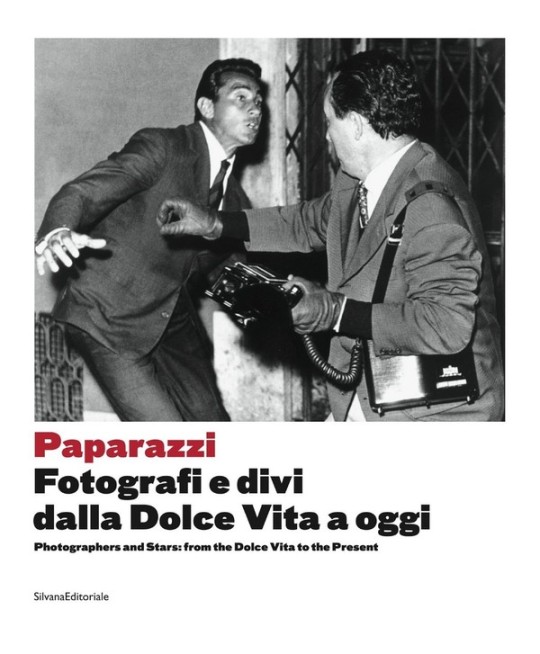

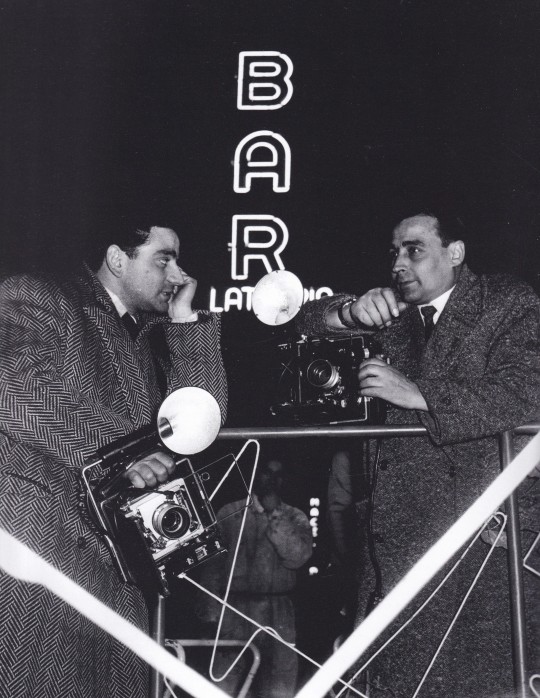

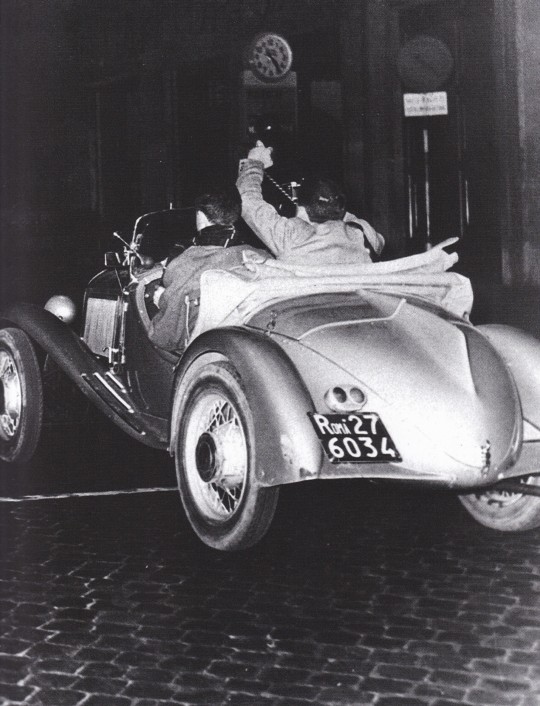
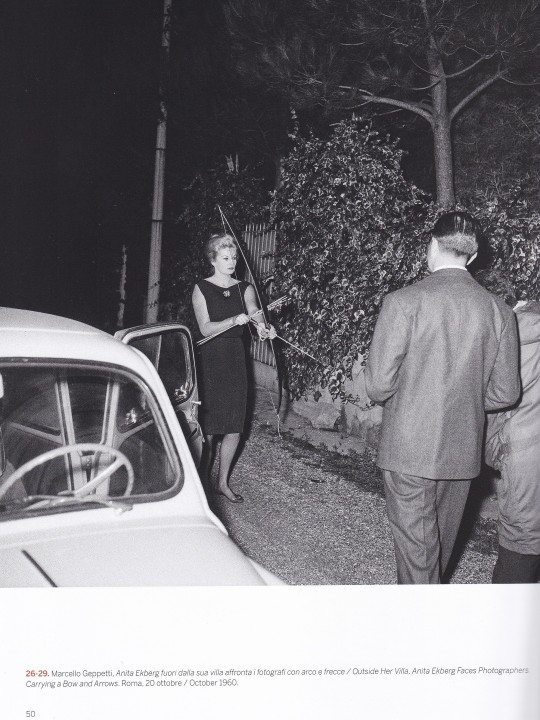
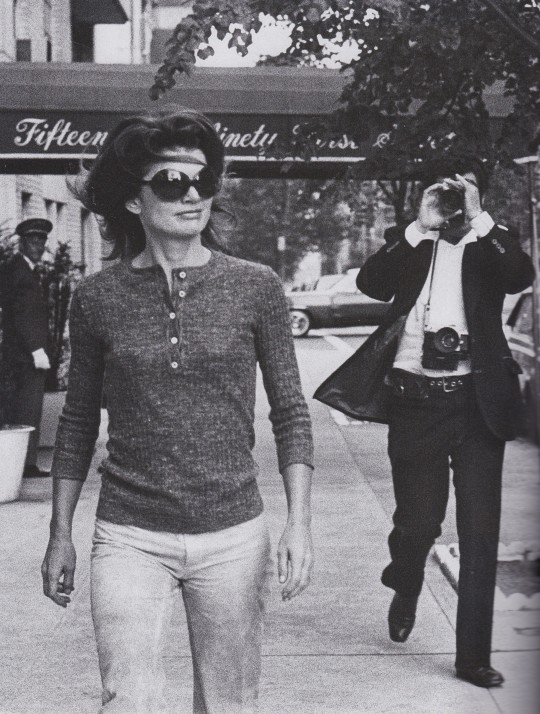



Paparazzi Fotografi e divi dalla Dolce Vita a oggi
Photographer and Stars: from the Dolce Vita to the Present
a cura di Walter Guadagnini, Francesco Zanot
SilvanaEditoriale, Cinisello Balsamo 2017, 136 pagine, 190 illustrazioni, 23x28cm, ISBN 9788836637874, Brossura con alette,
Italiano, Inglese
euro 38,00
email if you want to buy [email protected]
Pubblicato in occasione della grande mostra a CAMERA – Centro Italiano per la Fotografia, il volume ripercorre la storia e la leggenda dei “paparazzi”, fenomeno fotografico e di costume nato negli anni in cui Roma era diventata “Hollywood sul Tevere”. Attraverso oltre 190 immagini, si susseguono le figure dei protagonisti di quella stagione, soprattutto i divi e le divine del cinema, e i racconti fotografici delle notti brave di Via Veneto tra gli anni cinquanta e sessanta. Le fotografie di Tazio Secchiaroli, Marcello Geppetti, Elio Sorci, Ron Galella e di tanti altri protagonisti di quelle vicende compongono – insieme alle pagine delle riviste in cui furono pubblicate – un affresco della comunicazione popolare del tempo. Terminata la stagione eroica dei paparazzi, quel linguaggio diviene un codice, utilizzato in diversi contesti artistici e commerciali, come dimostrano le immagini di protagonisti della scena fotografica odierna come Alison Jackson, Armin Linke e Ellen von Unwerth, che chiudono il volume.
Torino, Camera, settembre 2017 - gennaio 2018
08/03/24
#Paparazzi#Dolce Vita#photography exhibition catalogue#Camera Torino 2017#Tazio Secchiaroli#Marcello Geppetti#Elio Sorci#Ron Galella#Via Veneto#Armin Linke#Ellen von Unwerth#Alison Jackson#Anita Ekberg#Kate Moss#David Bowie#Jacqueline Kennedy#Brigitte Bardot#Monica Bellucci#photography books#fashionbooksmilano
8 notes
·
View notes
Text

Non voglio imparare a non aver paura, voglio imparare a tremare. Non voglio imparare a tacere, voglio assaporare il silenzio da cui ogni parola vera nasce. Non voglio imparare a non arrabbiarmi, voglio sentire il fuoco, circondarlo di trasparenza che illumini quello che gli altri mi stanno facendo e quello che posso fare io. Non voglio accettare, voglio accogliere e rispondere. Non voglio essere buona, voglio essere sveglia. Non voglio fare male, voglio dire: mi stai facendo male, smettila. Non voglio diventare migliore, voglio sorridere al mio peggio. Non voglio essere un’altra, voglio adottarmi tutta intera. Non voglio pacificare tutto, voglio esplorare la realtà anche quando fa male, voglio la verità di me. Non voglio insegnare, voglio accompagnare. Non è che voglio così, è che non posso fare altro.
Chandra Livia Candiani - Il silenzio è cosa viva. L’arte della meditazione - Torino, Einaudi 2018
3 notes
·
View notes
Text
Ho ordinato immediatamente una caraffa con depuratore perché in neanche 3 giorni bere l’acqua del rubinetto di Torino mi ha fatto venire fuori i peggio brufoli dal 2018
9 notes
·
View notes
Text
Journalist Andrea Joly attacked outside club in Turin
La Stampa journalist Andrea Joly was attacked in Turin near a venue called Asso di Bastoni, according to Italian media.
The media report that the place is frequented by national-oriented militants. The journalist reportedly walked in front of the venue during a party. Some people allegedly came out, asked him who he was, demanded his phone and then threatened and kicked him when he tried to leave.
Italy’s former PM and head of the 5-Star Movement (M5S), Giuseppe Conte, condemned the attack on Joly on X, noting “anti-democratic tendencies” in the country.
“The squad attack suffered by Andrea Joly, journalist of the newspaper La Stampa, demonstrates once again the need to strengthen democratic antibodies every day to fight hatred, intolerance and neo-fascist violence. It is a serious and unacceptable episode, but it is not an isolated case: the alarm bells about some anti-democratic tendencies in our country have already rung several times. Politics and healthy forces have the task of intervening to put an end to these delirious regurgitations of arrogance and violence. My solidarity and that of @Mov5Stelle goes to Joly and the entire editorial staff.”
Marco Tarquinio, Italian journalist and former editor of Avvenire, also denounced the attack.
Total solidarity with @AndreaJoly_, who was attacked on the night between Saturday and Sunday 21 July in #Torino by Casapound militants while he was doing his job as a reporter for @LaStampa. Firm condemnation of fascist aggression. We need a clear response from the State, colleagues and citizens.
Andrea Joly is a young journalist living in Turin. After graduating from the Cattaneo scientific high school in the Piedmontese capital, he studied at the University of Turin and attended the Ferdinando Rossi School of Advanced Studies.
He has been working for La Stampa since 2018 and, as indicated in his social profiles, writes about everything, with a particular focus on international affairs, as evidenced by his reporting on Ukraine and the Salis case in Hungary.
Read more HERE

#world news#news#world politics#europe#european news#european union#eu politics#eu news#italy#italy news#andrea joly#joly
3 notes
·
View notes
Note
Trick or treat? (For the ficwip game!)
We know from Yuri on Ice ep 12 that Stéphane Lambiel won silver at the Torino Olympics. Year not stated onscreen; in RL this was 2006. RL Lambiel also came in fourth in the 2010 Vancouver Olympics.
One of Victor's gold medals seen in ep 10 looks suspiciously like the ones handed out in 2006 in Torino.
We know from the Ice Adolescence preview trailer that ten years before the show, Victor participated in the Olympics in Paris.
Conclusion: Stéphane Lambiel won silver in Torino in 2010. Victor may have won gold in both 2006 and Torino, we're unlikely to know until we actually get Ice Adolescence, but he definitely won gold in at least one of the two.
(Evgeni Plushenko and Daisuke Takahashi, who took two of the 2010 medals in RL, probably don't exist in YOI; if Evan Lysacek does, then probably something about competing against Victor knocked him down to bronze or below. Christophe Giacometti may or may not have medaled at the 2010 or 2014 Olympics, but probably not both; the fact Victor remarked on sharing multiple Grand Prix Final, Europeans, and Worlds podiums with Chris tells me they have never shared multiple Olympics podiums and may never have shared the Olympics podium at all.)
And since 2006 Paris Olympics is far from the only example of YOI setting an event somewhere other than where the RL event that year was: in order to avoid having two significant-to-Yuuri competitions in Sochi, I can move the 2014 Olympics to wherever I like! Since one of the losing bids for the RL 2014 Olympics was Jaca, Spain, which lost partly because Spain was going to host only the mountain events in Jaca, with the ice events and the Opening and Closing Ceremonies in Zaragoza—the problem being that the bidding city has to host both those ceremonies—I have therefore switched Spain's 2014 bid from Jaca to Zaragoza.
(I'm on team "Yuuri came in like eighth in the 2014 Olympics". He therefore wanted to burn his Olympic team jacket out of shame, but Minako stole it before he could. It's stored either with the rest of his old costumes or with hers, possibly both on account of Minako stores the lot at her studio.)
(2018 and 2022 Olympics in YOIverse are definitely in Pyeongchang and Beijing, same as RL, though. We have official art showing Beijing, and though RL 2017 Four Continents was in the same venue as RL Pyeongchang Olympics figure skating and therefore could plausibly be what Seung-gil's coach was talking about, that venue is in Gangneung and the Olympics are by far the more important competition.)
10 notes
·
View notes